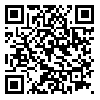Volume 21, Issue 1 (10-2023)
sjsph 2023, 21(1): 101-122 |
Back to browse issues page
Download citation:
BibTeX | RIS | EndNote | Medlars | ProCite | Reference Manager | RefWorks
Send citation to:



BibTeX | RIS | EndNote | Medlars | ProCite | Reference Manager | RefWorks
Send citation to:
Mahmoud alilou M, esmailpour K, Farzi A. The Effectiveness of Emotional Regulation and Mindfulness Techniques Based on Dialectical Behavior Therapy in Improving Negative Emotions (Depression, Anxiety, Anger) in Borderline Personality Disorder. sjsph 2023; 21 (1) :101-122
URL: http://sjsph.tums.ac.ir/article-1-6219-en.html
URL: http://sjsph.tums.ac.ir/article-1-6219-en.html
1- 1- Ph.D. Professor, Department of Psychology, Faculty of Psychology and Educational Sciences, University of Tabriz, Tabriz, Iran
2- 2- Ph.D. Associate Professor, Department of Psychology, Faculty of Psychology and Educational Sciences, University of Tabriz, Tabriz, Iran
3- 3- Ph.D. Student, Department of Psychology, Faculty of Psychology and Educational Sciences, University of Tabriz, Tabriz, Iran ,aisanfarzi@gmail.com
2- 2- Ph.D. Associate Professor, Department of Psychology, Faculty of Psychology and Educational Sciences, University of Tabriz, Tabriz, Iran
3- 3- Ph.D. Student, Department of Psychology, Faculty of Psychology and Educational Sciences, University of Tabriz, Tabriz, Iran ,
Abstract: (879 Views)
Background and Aim: This study was conducted to investigate the effectiveness of mindfulness and emotion regulation based on dialectical behavior therapy on negative emotions (anxiety, anger and depression) among people with borderline personality disorder (BPD).
Materials and Methods: This was a single-case experiment study of the multiple-step baseline type conducted in eight one-hour sessions on three patients with a one-month follow-up. The statistical population was patients suffering from borderline personality disorder, from among whom three volunteers diagnosed by a psychiatrist were selected by the targeted available selection process and a structured clinical interview based on the research criteria. Data were collected using the second edition of the Beck Depression Inventory (BDI-II), Beck Anxiety Inventory (BAI) and Multidimensional Anger Inventory (MAI) questionnaires.
Results: Data analysis using special graphs and tables for the single-subject designs showed that the effect size in the variables of anxiety, depression and anger for the three subjects was, respectively, as follows: for the first subject 2.494, 2.260 and 2.484; for the second subject 3.087, 2.827 and 2.727; and for the third subject 4.854, 2.183 and 2.917.
Conclusion: This treatment method can bring about statistically significant changes in the symptoms of depression, anxiety and anger in patients with borderline personality disorder.
Materials and Methods: This was a single-case experiment study of the multiple-step baseline type conducted in eight one-hour sessions on three patients with a one-month follow-up. The statistical population was patients suffering from borderline personality disorder, from among whom three volunteers diagnosed by a psychiatrist were selected by the targeted available selection process and a structured clinical interview based on the research criteria. Data were collected using the second edition of the Beck Depression Inventory (BDI-II), Beck Anxiety Inventory (BAI) and Multidimensional Anger Inventory (MAI) questionnaires.
Results: Data analysis using special graphs and tables for the single-subject designs showed that the effect size in the variables of anxiety, depression and anger for the three subjects was, respectively, as follows: for the first subject 2.494, 2.260 and 2.484; for the second subject 3.087, 2.827 and 2.727; and for the third subject 4.854, 2.183 and 2.917.
Conclusion: This treatment method can bring about statistically significant changes in the symptoms of depression, anxiety and anger in patients with borderline personality disorder.
Keywords: Borderline Personality Disorder, Emotion Regulation, Mindfulness, Anger, Depression, Anxiety
Type of Study: Research |
Subject:
Public Health
Received: 2023/10/28 | Accepted: 2023/10/23 | Published: 2023/10/23
Received: 2023/10/28 | Accepted: 2023/10/23 | Published: 2023/10/23
Send email to the article author
| Rights and permissions | |
 |
This work is licensed under a Creative Commons Attribution-NonCommercial 4.0 International License. |





